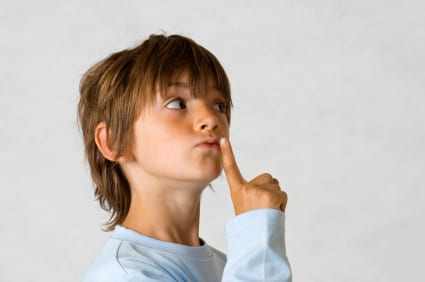 Do you want to know all of your child’s secrets? Some parents would say “yes,” while others may say “no”. We certainly don’t need to know everything our children do and say throughout their lives. However, we feel it is extremely important to teach children about the issue of secrets. Teaching children the difference between a good secret and a bad secret is not difficult, and it is a must to keeping our children safe.
Do you want to know all of your child’s secrets? Some parents would say “yes,” while others may say “no”. We certainly don’t need to know everything our children do and say throughout their lives. However, we feel it is extremely important to teach children about the issue of secrets. Teaching children the difference between a good secret and a bad secret is not difficult, and it is a must to keeping our children safe.
Predators (could be a family member, coach, babysitter etc. – 90% of the time a child is harmed it is by someone they know) want your child to be able to keep a secret. A predator may start with a small secret, and if your child keeps it, they know they have an easy target. We want all children to be off limits to predators and one way we can stop them is by teaching our children the difference between a good secret and a bad secret. Have you ever had this conversation with your child? If not…it is not to late.
Sit down and discuss this:
“There are good secrets and there are bad secrets. A good secret feels good to know and has a time limit. Ask: What is an example of a Good Secret? (You can also use the word surprise) A surprise party, a special gift you helped pick out for your brother, something the team is going to give the coach at the end of season. One thing these all have in common is that they have a beginning and an end. At some point everyone is going to hear about the secret. Ask your child- How does a good secret feel to you?” Some responses: feels good, safe, comfortable, excited, special, and happy.
“A bad secret is something that you know inside but might be afraid to tell, feel worried, confused, scared, and nervous. Tell your child that anytime you have any of those types of feelings (butterflies in the stomach) that is the exact kind of secret that you NEED to tell- even if you promised not to.” Tell your children, “No one should ever tell you to keep a secret from us,” or if someone tells you to keep a secret and you are confused by what they tell you or it deals with your safety, NEVER keep that secret. Report to us immediately.” Examples of a bad secret: Your friend tells you that her brother hits her and she makes you promise not to tell; your swim coach tells you that he is going to give you a special present because you are his favorite, but it’s a special secret; your friend’s Uncle touches you on your privates and makes you promise not to tell.
The concept and dilemma children need to work through regarding secrets: Your babysitter asks you to play a secret game- she will give you a special present but you are not allowed to tell your parents. This is a tough decision for a child. A child will be:
-Curious about the secret game
-Want to please their babysitter
-Want a gift
-Feel “special” that the babysitter wants to play with them
-What if the child loves the babysitter and knows if she tells her parents the secret they will be mad and the babysitter won’t be allowed to come back?
These are all really hard consequences for children to consider.
50% of offenders are adolescents (we know…this is a tough stat to take) and much of the offending happens in babysitting situations. It is extremely important that you discuss this with your children to keep them safe. Many celebrities have come out about their own sexual abuse experiences and many incidences happened in babysitting situations.
Recommendations:
-Have discussions with your children on a regular basis by finding teachable moments (TV shows often offer a lot for discussion) ask your children, “Do you think that is a good secret or a bad secret?” “Why?” Remember, this should be a ongoing discussion. Please don’t think of this as a one time conversation.
-Family policy: NO secrets
-Discuss “What if” scenarios to see how your children would handle specific situations. This is really important….children are faced with difficult situations and if you have not talked with them about how to navigate through to the safest and smartest choices they will be unsure how to best handle them. It is important to remain poker faced as they tell you how they would handle something as it might not be the safest or smartest choice. Allow your child to talk it through with you without immediately reacting (or over reacting) then discuss different options that may be a safer choice.
Our book, ‘My Body is Special and Belongs To ME!’ Is a great teaching tool for your child. Above is a page from our book teaching children about secrets. Our children’s book also contains an extensive parent section to help you continue learning. By having the conversation about good secrets and bad secrets, you have now deepened the lines of communication between you and your child and taught your child one way to become a hard target for a predator. To purchase our book, My Body is Special and Belongs to ME! go to www.kidsafefoundation.org all proceeds from our book help support the Foundation – a 501(c)3 nonprofit.





